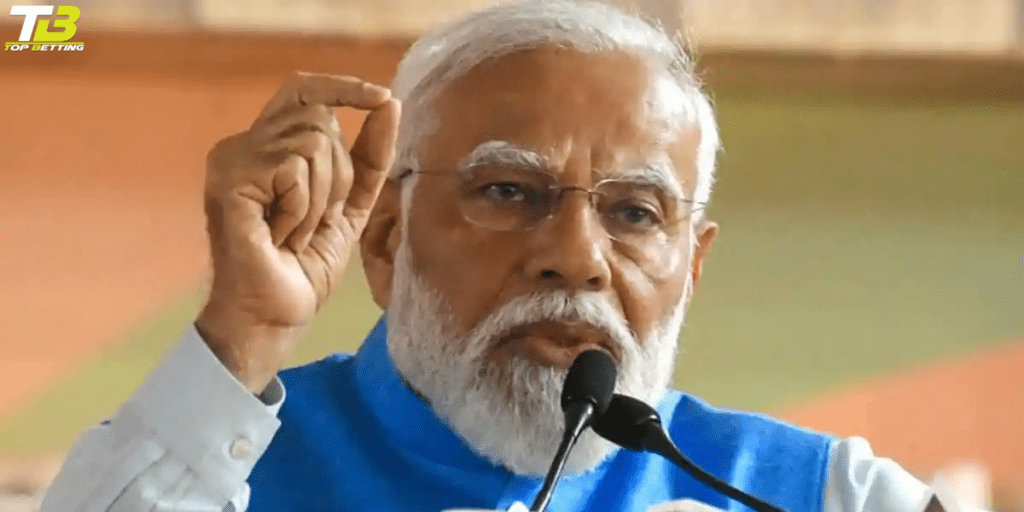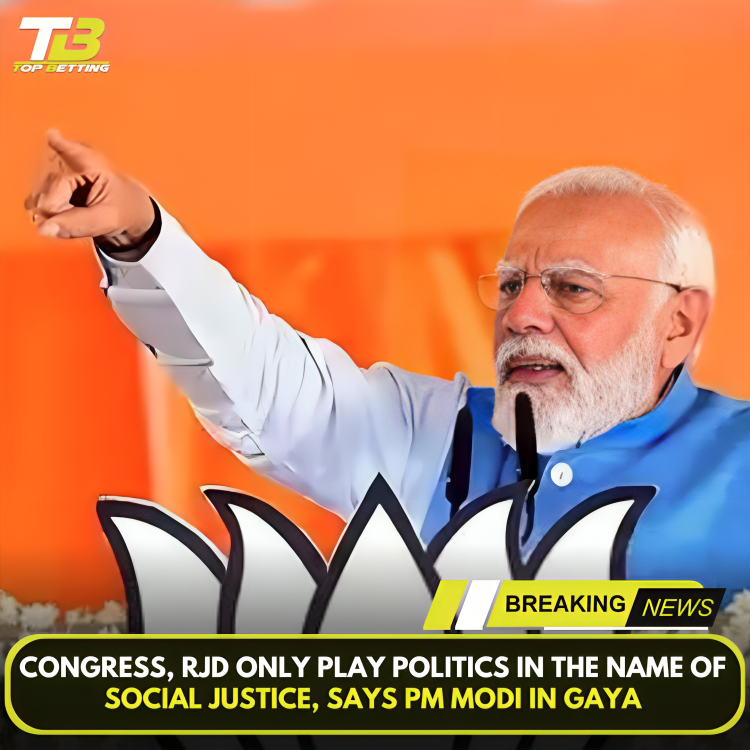
RJD Play Politics in Name of Social Justice: Modi
In a recent rally in Gaya, Prime Minister Narendra Modi launched a scathing attack on the Congress and the Rashtriya Janata Dal (RJD), accusing them of playing politics in the name of social justice. This statement by PM Modi highlights the ongoing political discourse surrounding social justice and its implications for the upcoming Lok Sabha elections. In this article, we will delve into the key points made by PM Modi, the response from the opposition parties, and the broader context of social justice in Indian politics.
The Accusation: Playing Politics in the Name of Social Justice
During his rally in Gaya, PM Modi accused the Congress and the RJD of using social justice as a mere political tool. He argued that their focus on social justice was solely aimed at garnering votes rather than genuinely addressing the issues faced by marginalized communities. PM Modi emphasized the need for a more inclusive and comprehensive approach to social justice, one that goes beyond mere political rhetoric.
PM Modi’s Vision for Social Justice
PM Modi outlined his vision for social justice, emphasizing the need for development and empowerment of marginalized communities. He stated that his government was committed to ensuring equal opportunities and upliftment for all sections of society. PM Modi’s vision includes various initiatives and policies aimed at improving the lives of the underprivileged, such as the Pradhan Mantri Jan Dhan Yojana, Ayushman Bharat, and the Stand Up India scheme.
The Opposition’s Response
In response to PM Modi’s accusations, the Congress and the RJD defended their commitment to social justice. They highlighted their track record of implementing policies and programs that aimed to uplift marginalized communities. The opposition parties criticized PM Modi’s remarks as politically motivated and accused him of neglecting the interests of the underprivileged during his tenure.
The Importance of Social Justice in Indian Politics
Social justice has always been a crucial aspect of Indian politics. It encompasses the ideals of equality, inclusivity, and the redistribution of resources to ensure a more equitable society. Parties across the political spectrum often use the rhetoric of social justice to appeal to voters, particularly those from marginalized communities. However, the implementation and effectiveness of these promises vary, leading to debates and critiques, as seen in PM Modi’s statements.
Achievements and Challenges in Social Justice
Over the years, various governments have undertaken initiatives to promote social justice in India. These include reservations for historically marginalized communities, poverty alleviation programs, and educational scholarships. While significant progress has been made, challenges remain. Issues such as caste discrimination, income inequality, and lack of access to quality education and healthcare continue to hinder the achievement of true social justice.
Social Justice and Electoral Politics
During electoral cycles, the spotlight on social justice intensifies as political parties court marginalized communities with promises of transformative policies. Yet, this fervor often fizzles out post-election, leaving many feeling betrayed and disillusioned. The crux of the issue lies in the translation of electoral rhetoric into tangible, lasting change.
Political parties, in pursuit of votes, may prioritize short-term gains over long-term societal shifts. Once in power, competing interests, bureaucratic hurdles, and fiscal constraints can impede the realization of promised reforms. Moreover, the transient nature of electoral politics often leads to a lack of accountability, allowing politicians to renege on commitments without consequence.
To bridge this gap between promise and action, systemic reforms are imperative. Strengthening mechanisms for accountability, such as independent oversight bodies and transparent reporting mechanisms, can hold elected officials accountable for their pledges. Additionally, fostering grassroots movements and community-led initiatives empowers marginalized groups to advocate for their own interests beyond the electoral cycle.
Ultimately, genuine progress in social justice requires a sustained commitment beyond the ballot box. It demands a shift from transactional politics to transformative governance, where the voices and needs of marginalized communities are prioritized and championed consistently, irrespective of electoral cycles.
The Need for Comprehensive Social Justice Policies
Prime Minister Modi’s critique of the Congress and the RJD underscores the necessity for comprehensive social justice policies that transcend mere rhetoric. True social justice demands a multi-dimensional strategy tackling entrenched systemic disparities like poverty, discrimination, and unequal resource distribution. This entails more than just token affirmative action measures; it necessitates holistic approaches encompassing economic empowerment, educational reforms, healthcare accessibility, and the upliftment of marginalized communities.
Effective social justice policies must address the root causes of inequality, fostering inclusive growth and ensuring that no segment of society is left behind. This involves not only creating opportunities but also dismantling barriers to progress, whether they be socio-economic, cultural, or institutional. By prioritizing the welfare and empowerment of marginalized groups, governments can pave the way for a more equitable and prosperous society.
In essence, comprehensive social justice policies are indispensable for fostering a fair and inclusive society where every individual has the opportunity to thrive. They represent a commitment to justice, equality, and human dignity, serving as a beacon of hope for those who have long been marginalized or oppressed.

Conclusion
The politics of social justice continues to shape the Indian political landscape. PM Modi’s criticism of the Congress and the RJD for playing politics in the name of social justice reflects the ongoing debate surrounding this crucial issue. Achieving true social justice requires not only political rhetoric but also sustained efforts to address the root causes of inequality and discrimination. As voters, it is important to critically evaluate the promises made by political parties and hold them accountable for their actions in promoting social justice.










